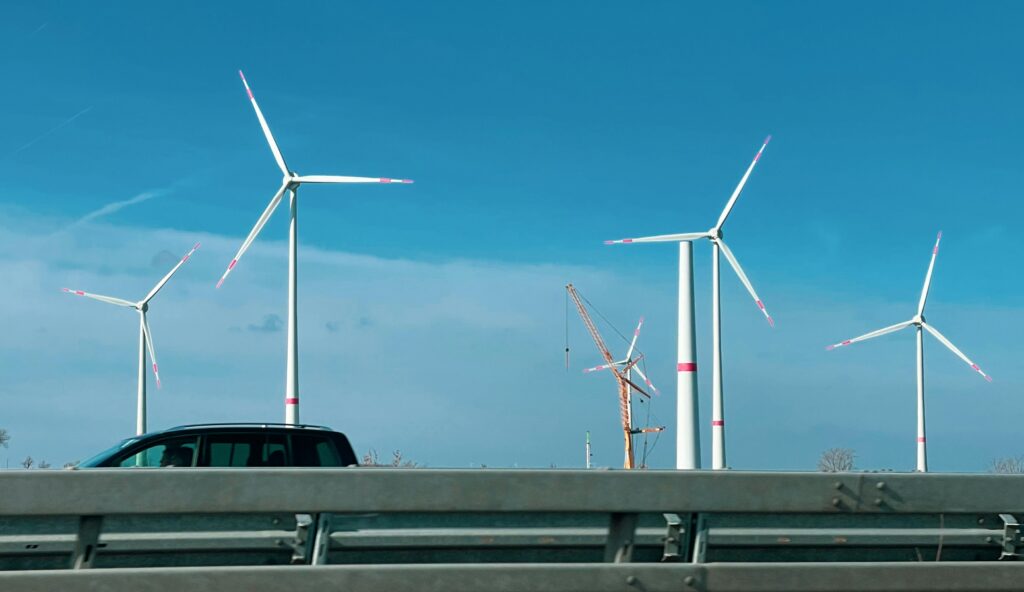Table of Contents
- The Rise of Sustainable Entrepreneurship in 2025
- Eco-Friendly Startups: Pioneers of Change
- Green Business Ideas: Opportunities for Entrepreneurs
- 1. Renewable Energy Solutions
- 2. Sustainable Fashion
- 3. Waste Management and Recycling
- Eco-Innovation: The Heart of Sustainable Business Models
- Key Elements of Eco-Innovation
- Clean Tech Startups: Driving the Green Economy
- Emerging Trends in Clean Tech
- Startup Sustainability: Strategies for Success
- 1. Embrace Technology
- 2. Build a Strong Brand Identity
- 3. Collaborate and Network
- Conclusion: The Future of Sustainable Entrepreneurship
In 2025, sustainable entrepreneurship is not just a trend; it has become a dominant force in the global market. Eco-friendly startups are leading the charge, leveraging innovative business models and clean technologies to create environmentally responsible solutions. This article explores the rise of sustainable entrepreneurship, the impact of eco-friendly startups, and the future of green business ideas in a rapidly evolving economy.
Discover the future of business with sustainable entrepreneurship! Eco-friendly startups are leading the way in 2025, transforming industries and promoting a greener planet. Join the movement and stay informed about the latest trends and innovations. Subscribe to the Kanguru Academy newsletter
The Rise of Sustainable Entrepreneurship in 2025
Sustainable entrepreneurship refers to the practice of creating and managing businesses that prioritize environmental and social responsibility alongside profitability. As consumers become increasingly aware of climate change and environmental degradation, the demand for sustainable products and services has surged. According to a recent report by the Global Sustainable Investment Alliance, sustainable investments reached $35.3 trillion in 2020, a 15% increase from 2018, indicating a growing trend towards eco-conscious business practices.

Eco-Friendly Startups: Pioneers of Change
Eco-friendly startups are at the forefront of this movement, developing innovative solutions that address environmental challenges. These businesses are not only focused on profit but also on creating a positive impact on society and the planet. For instance, companies like Beyond Meat and Impossible Foods have revolutionized the food industry by offering plant-based alternatives to meat, significantly reducing carbon footprints associated with livestock farming.
In 2025, the market for plant-based foods is projected to reach $74.2 billion, driven by consumer demand for healthier and more sustainable options. This shift is indicative of a broader trend where eco-innovation is becoming a key driver of growth in various sectors.
Green Business Ideas: Opportunities for Entrepreneurs
As the green economy continues to expand, numerous opportunities arise for entrepreneurs looking to make a difference. Here are some promising green business ideas that are gaining traction in 2025:
1. Renewable Energy Solutions
With the global push towards clean energy, startups focusing on solar, wind, and other renewable energy sources are thriving. Companies like Sunrun and Tesla are leading the way in solar energy solutions, making it easier for consumers to adopt sustainable energy practices.
2. Sustainable Fashion
The fashion industry is notorious for its environmental impact, but sustainable fashion startups are changing the narrative. Brands like Reformation and Allbirds are creating eco-friendly clothing and footwear using sustainable materials and ethical manufacturing processes.

3. Waste Management and Recycling
Innovative waste management solutions are essential for reducing landfill waste and promoting recycling. Startups like TerraCycle are pioneering new methods for recycling hard-to-recycle materials, turning waste into valuable resources.
Eco-Innovation: The Heart of Sustainable Business Models
Eco-innovation is the process of developing new products, services, or processes that provide environmental benefits. This approach is central to sustainable business models, allowing companies to differentiate themselves in a competitive market. According to a study by the European Commission, eco-innovation can lead to increased competitiveness, job creation, and economic growth.
Key Elements of Eco-Innovation
1. **Resource Efficiency**: Eco-innovative businesses focus on using resources more efficiently, reducing waste and energy consumption.
2. **Sustainable Supply Chains**: Companies are increasingly adopting sustainable supply chain practices, ensuring that their products are sourced responsibly.
3. **Circular Economy**: The circular economy model emphasizes reusing and recycling materials, minimizing waste, and creating closed-loop systems.

Clean Tech Startups: Driving the Green Economy
Clean technology, or cleantech, refers to products and services that use renewable materials and energy sources to reduce environmental impact. In 2025, cleantech startups are expected to play a crucial role in the transition to a sustainable economy. According to a report by Bloomberg New Energy Finance, global investment in clean energy technologies is projected to reach $2.6 trillion by 2025.
Emerging Trends in Clean Tech
1. **Energy Storage Solutions**: As renewable energy sources like solar and wind become more prevalent, the need for efficient energy storage solutions is critical. Startups focusing on battery technology and energy management systems are gaining momentum.
2. **Electric Vehicles (EVs)**: The EV market is booming, with companies like Rivian and Lucid Motors leading the charge. The global electric vehicle market is expected to reach $800 billion by 2027, driven by advancements in battery technology and increasing consumer demand.
Startup Sustainability: Strategies for Success
For eco-friendly startups to thrive in 2025, they must adopt effective sustainability strategies. Here are some key approaches:
1. Embrace Technology
Leveraging digital innovation is essential for sustainable startups. Technologies such as artificial intelligence, blockchain, and the Internet of Things (IoT) can enhance operational efficiency and reduce environmental impact.
2. Build a Strong Brand Identity
Consumers are increasingly drawn to brands that align with their values. Sustainable startups should focus on building a strong brand identity that emphasizes their commitment to environmental responsibility.
3. Collaborate and Network
Partnerships with other businesses, NGOs, and government agencies can amplify the impact of sustainable initiatives. Collaborating with like-minded organizations can lead to innovative solutions and increased visibility.
Conclusion: The Future of Sustainable Entrepreneurship
As we move further into 2025, sustainable entrepreneurship will continue to reshape the global business landscape. Eco-friendly startups are not only addressing pressing environmental challenges but also creating new economic opportunities. By embracing eco-innovation, adopting sustainable business models, and leveraging technology, these businesses are paving the way for a greener future. The rise of the green economy presents a unique opportunity for entrepreneurs to make a meaningful impact while achieving financial success.
In summary, sustainable entrepreneurship is more than a trend; it is a necessary evolution in the way we conduct business. As eco-friendly startups dominate the market, they are setting new standards for what it means to be a responsible and successful entrepreneur in the 21st century.


